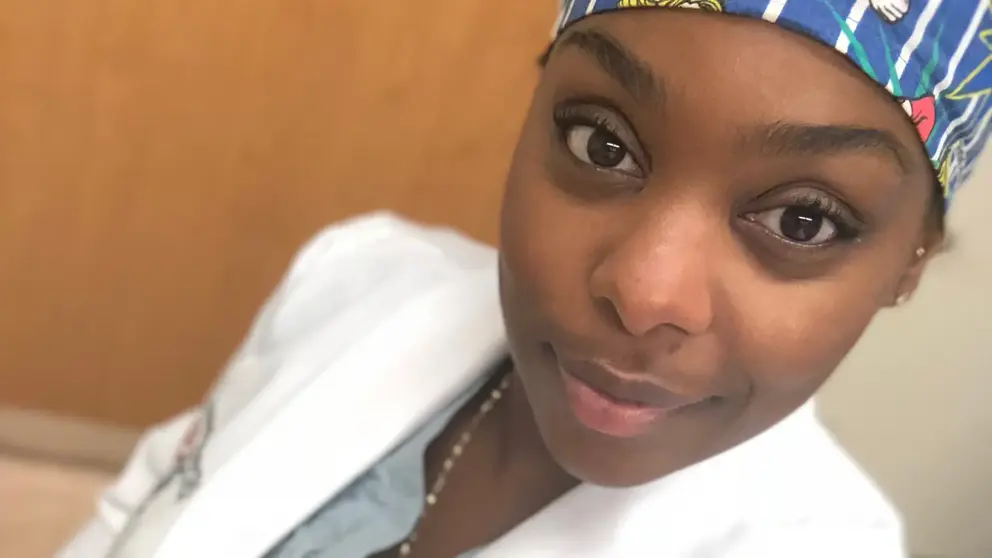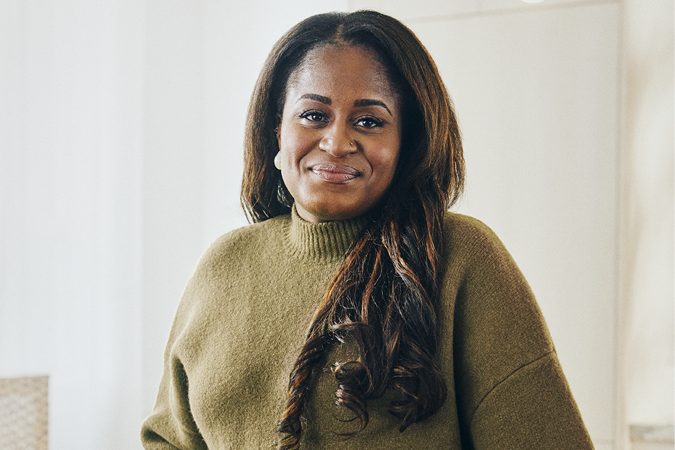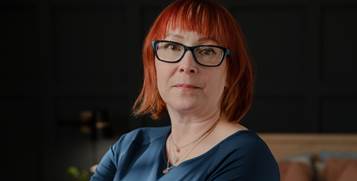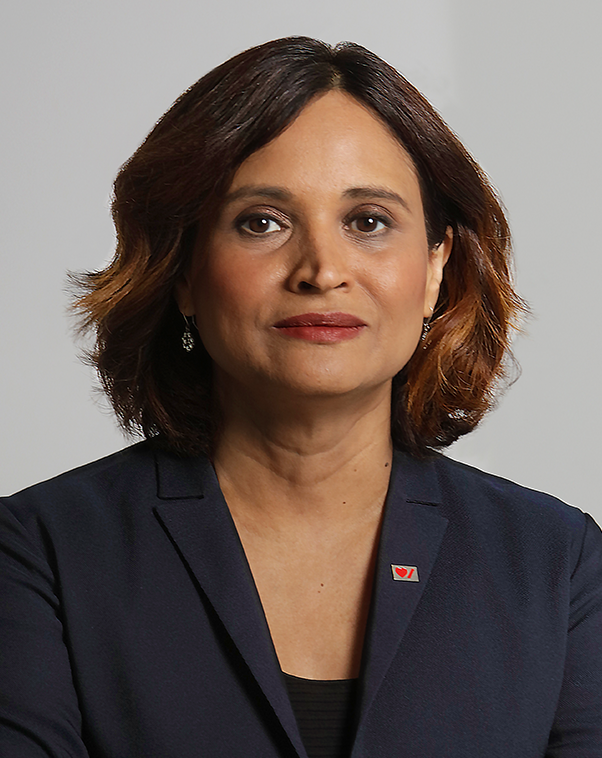You’re the first Black woman in Canada to become an interventional cardiologist. How early in your life did you decide that this was going to be the path for you?
I decided I wanted to be a physician in high school. It was pretty clear in my mind at that time, and I never stopped working to achieve that goal. During my first year in medical school, I fell in love with the heart, but I did not think cardiology was for me until I learned about interventional cardiology (this is a practice that works on the arteries in the heart to remove blockages using non-invasive procedures, through the wrists or groin).
I have always strived for excellence. Not seeing any example never meant it couldn’t be done.
Initially, I wanted to be a general surgeon! Interventional cardiology would eventually allow me to merge my growing passion for the cardiovascular system with my love for surgery… and my need for action! Those who know me know I can’t stand in place. I could never sit in an office all day, every day.
Did you have a lot of support?
I had a whole team behind me: my parents, my friends, my family. My high school and college teachers were also always very supportive of my endeavours. But I did come across people telling me that I might want to choose a different path. They would mention how difficult it was to get into medical school, but I ignored their advice.
When I started the school of medicine, there were very few Black students in a class of 250 people. It was years into my training before I encountered any teachers who looked like me.
I have been referred to as “the Black resident” instead of by my name. I have had a teaching physician suggest that I should consider another career - knowing I had already received my acceptance letter from the cardiology program. A few teachers even suggested that I was not “cut for cardiology”. I am glad I had so many other supervisors and mentors who encouraged me and believed in me!
Where did you find the strength to believe in your dreams, particularly since you could not see someone like yourself living them by example?
I have always strived for excellence. Not seeing any example never meant it couldn’t be done.
Both my parents had defied the odds by attending college and university and becoming young professionals in a foreign country. I was determined to follow in their footsteps and achieve my dreams, despite how the world perceived me, and independently of what society expected from me. I was determined to rise above the statistics and the stereotypes. I must also say, I love a challenge.
You’re of Haitian descent and a young woman. How does this impact your work and your influence in the medical space?
I struggled to find my voice for a while. As a Black woman, a “double minority”, I often felt like I couldn’t show up authentically since I was so different from my colleagues. Today, I understand that my identity is my strength, and I am unapologetically Black and feminine.
Being a Black woman in medicine gives me a different perspective on the unique experience women and Black, Indigenous and people of colour encounter in a predominantly white medical system.
Offering culturally appropriate care is a cornerstone of my practice. I never hesitate to denounce racist or inappropriate behavior towards Black and Indigenous patients and raise awareness on racial bias in medicine.
You have mentioned a phenomenon called the biology of adversity that affects Black, Indigenous and South Asian people. Can you explain what this is?
The biology of adversity refers to the role of environments in the development of cardiovascular disease (CVD). Adverse environments, like living with poverty, facing discrimination, or lacking access to healthcare, can lead to chronic stress and inflammation in the body.
This ongoing stress and inflammation increase the risk of developing heart disease. In other words, where you live and the challenges you face daily can have a big impact on your heart health. This connection highlights the importance of addressing social and environmental factors to improve overall heart health.
Is biology of adversity in any way linked to generational trauma?
In my opinion, these two concepts are intertwined. Traumatic events with social, economic and familial impacts cause distress that can be passed down for generations. What is also passed down is the DNA. On a genetic level, even the DNA adapts to the chronic stress state by decreasing anti-inflammatory genes transcription and by increasing the production of inflammatory cytokines (cytokines are small proteins in the body that help control the immune system and inflammation).
Stress has an impact on our DNA! And the biologic effects of social determinants of health on the risk of cardiovascular disease may be passed on to the next generation.
In a recent article, you note that women, especially minority women, often face more severe complications from cardiovascular disease, despite having fewer risk factors. Why is this, and how do social and economic factors contribute?
The lack of awareness and the limited access to care remain important issues in the Black, Indigenous and South Asian communities. This can lead to delays in treatment and management. Racial minority groups are also more likely to experience poverty. They do not have equal employment opportunities, income, social support, and access to high-quality education and health care. The difference in cardiovascular disease outcomes is made worse by these factors.
Institutional racism is still very much alive, and it causes significant disparities in healthcare. For instance, Black patients are less likely to be referred for an angiogram. They are also less likely to be referred for a heart transplant.
Navigating the healthcare system is tricky on a good day. When faced with obstacles like discrimination, it becomes an overwhelming task, leaving many at greater risk for serious health complications.
What is the message you’d like to give to the next generation of Black women and girls who hope to become doctors?
You belong there.
Don’t let anybody stop you. Do not lose sight of who you are. Never tone yourself down. Spread your wings! Speak up, stand up, because you belong there.
- Learn about the unique risk factors for women
- Get resources for recovering from heart disease
- Read stories of women who faced heart disease and stroke
About Dr. Alexandra Bastiany

Dr. Alexandra Bastiany is an interventional cardiologist practicing in Ontario, Canada. She earned her medical degree and completed her Internal Medicine and Cardiology training at the Université de Montréal (UdeM). She graduated with honors, as the UdeM Faculty of Medicine’s first Black valedictorian. Dr. Bastiany then successfully completed a fellowship in Interventional Cardiology in Alberta, making her the first Black woman Interventional Cardiologist in Canada.
Combining her expertise in cardiovascular disease and her passion for community work, Dr. Bastiany is actively working to decrease race and gender biases leading to differences in standard of care and clinical outcomes. Most recently, Dr. Bastiany was published in the Canadian Journal of Physiology and Pharmacology, Engaging women in decision making about their heart health: A literature review with patients' perspective




